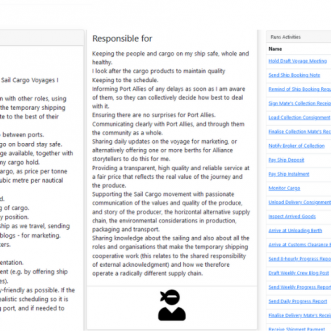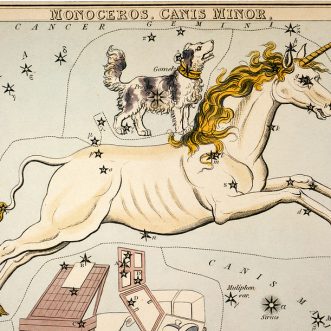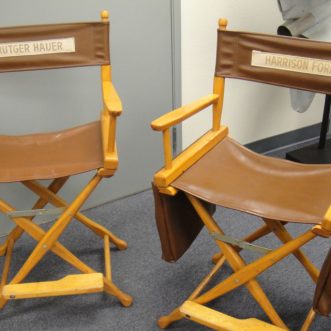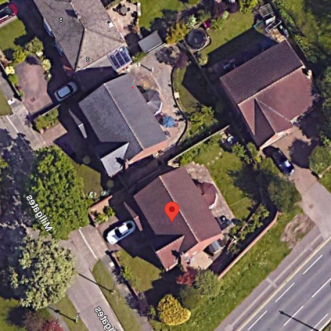
Roles
One of the things that seems to make innovation easier for the companies in “The Uncertainty Mindset”, is what Vaughn Tan describes as ‘modular roles’.
It’s not clear exactly what this means, but I think its something like this: my job title might be ‘chef’, but I can do things that might seem to fall outside that description, and even within it I can specialise.
Team members discover their own and each others preferred roles within a given innovation through practice. There’s no sense of treading on anyone’s toes or ‘that’s not what I was hired for’.
Like acting, any role can be stepped into simply by taking up the mask and putting it on. There will be stars and understudies but in essence anyone competent to play a role can play it. And by watching others play, a newcomer can learn enough about a role to take it up as a kind of apprentice too, because everyone is practicing, all the time.
In The Disappearing Boss, I use a similar idea. A Role is a part played in a performance by a person. It’s defined by what the Role does during the performance, and the parts of the customer experience they are responsible for delivering.
Here’s an example from one of my clients. Its the definition of the Ship’s Role in a Sail Cargo Voyage Co-op:

It covers what the Ship does as part of a Voyage, what it is responsible for, and the Activities it runs in order to achieve that.
What it doesn’t specify is how exactly the person playing the Role does that, nor the skills and comptencies needed. They are taken for granted, and they may well be different for different Ships. What matters is that responsibilities are delivered.
As Vaughn Tan has discovered, the great thing about using Roles rather than job descriptions is that they allow great flexibility in resourcing. One person can play many Roles. A given Role can be played by many people. Once defined, a Role can easily be handed off to someone outside the business, and replicated to increase capacity.
At the same time, focusing on the ‘what’ of a Role, rather than the ‘how’, leaves things to certain extent open, allowing every actor to bring their own personality to the performance and enabling them to respond to the unknown with the kind of creativity, flair and inspiration, that keeps your customer experience memorable. Worth coming back for again and again.
Discipline makes Daring possible.








